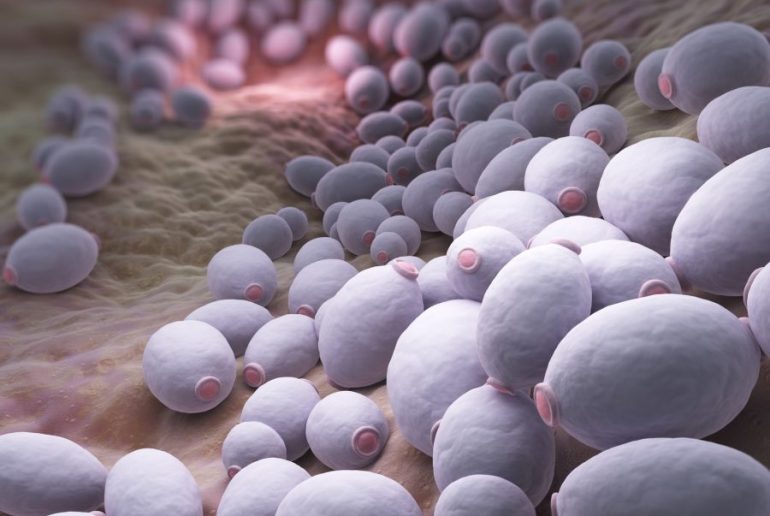
Therapeutic activity of a Saccharomyces cerevisiae-based probiotic and inactivated whole yeast on vaginal candidiasis
Authors: Eva Pericolini, Elena Gabrielli, Nathalie Ballet, Samuele Sabbatini, Elena Roselletti, Amélie Cayzeele Decherf, Fanny Pélerin, Eugenio Luciano, Stefano, Perito, Peter Jüsten & Anna Vecchiarelli – Virulance 2017, VOL. 8, NO. 1, 74-90
Vulvovaginal candidiasis is the most prevalent vaginal infection worldwide and Candida albicans is its major agent. Vulvovaginal candidiasis is characterized by disruption of the vaginal microbiota composition, as happens following large spectrum antibiotic usage. Recent studies support the effectiveness of oral and local probiotic treatment for prevention of recurrent vulvovaginal candidiasis. Saccharomyces cerevisiae is a safe yeast used as, or for, the production of ingredients for human nutrition and health. Here, we demonstrate that vaginal administration of prebiotico Saccharomyces cerevisiae live yeast (GI) and, in part, inactivated whole yeast Saccharomyces cerevisiae (IY), used as post-challenge therapeutics, was able to positively influence the course of vaginal candidiasis by accelerating the clearance of the fungus. This effect was likely due to multiple interactions of Saccharomyces cerevisiae with Candida albicans. Both live and inactivated yeasts induced coaggregation of Candida and consequently inhibited its adherence to epithelial cells. However, only the probiotic yeast was able to suppress some major virulence factors of Candida albicans such as the ability to switch from yeast to mycelial form and the capacity to express several aspartyl proteases. The effectiveness of live yeast was higher than that of inactivated whole yeast suggesting that the synergy between mechanical effects and biological effects were dominant over purely mechanical effects. The protection of epithelial cells to Candida-induced damage was also observed. Overall, our data show for the first time that Saccharomyces cerevisiae-based ingredients, particularly the living cells, can exert beneficial therapeutic effects on a widespread vaginal mucosal infection.

